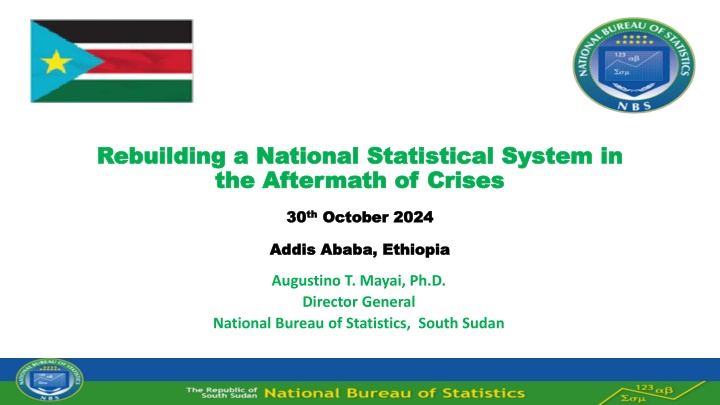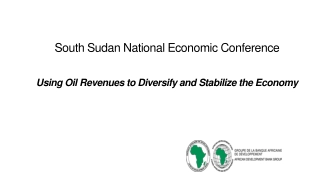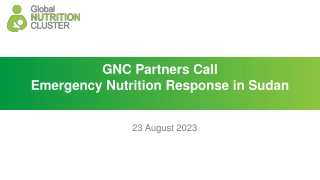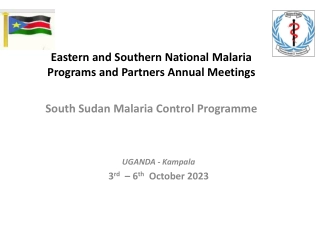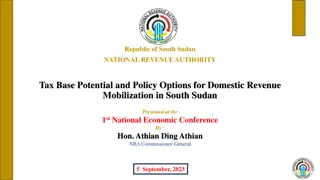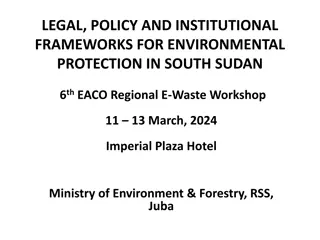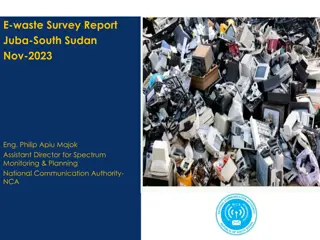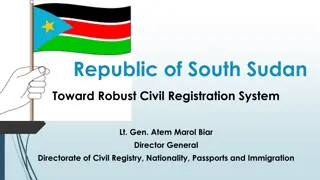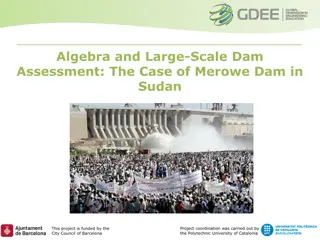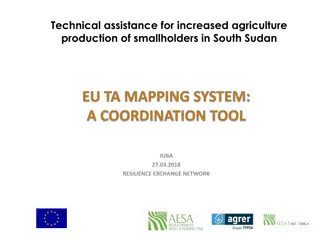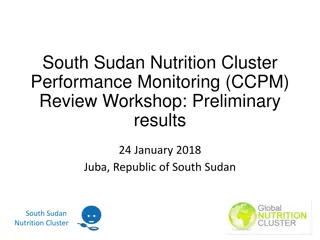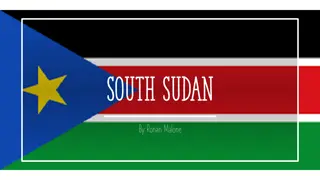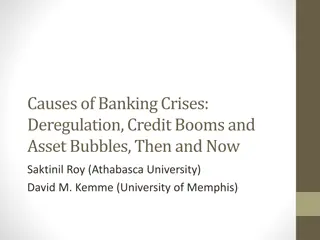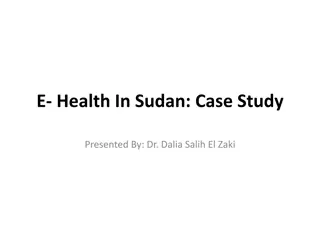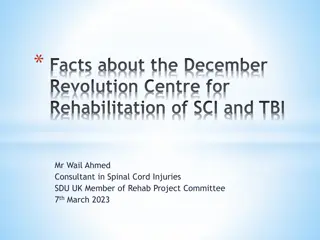Restoring National Statistical System After Crises in South Sudan
Since gaining independence in 2011, South Sudan has faced numerous challenges, including conflicts and natural disasters. The National Bureau of Statistics is working towards rebuilding and enhancing the country's statistical system to support recovery and development efforts. Governance frameworks and policy actions are being implemented to strengthen data collection, analysis, and dissemination, with a focus on collaboration and transparency among stakeholders.
Download Presentation

Please find below an Image/Link to download the presentation.
The content on the website is provided AS IS for your information and personal use only. It may not be sold, licensed, or shared on other websites without obtaining consent from the author.If you encounter any issues during the download, it is possible that the publisher has removed the file from their server.
You are allowed to download the files provided on this website for personal or commercial use, subject to the condition that they are used lawfully. All files are the property of their respective owners.
The content on the website is provided AS IS for your information and personal use only. It may not be sold, licensed, or shared on other websites without obtaining consent from the author.
E N D
Presentation Transcript
Rebuilding a National Statistical System in Rebuilding a National Statistical System in the Aftermath of Crises the Aftermath of Crises 30 30th thOctober 2024 October 2024 Addis Ababa, Ethiopia Addis Ababa, Ethiopia Augustino T. Mayai, Ph.D. Director General National Bureau of Statistics, South Sudan
Background Since gaining independence in 2011, South Sudan has been rocked by conflicts, natural disasters, and global economic shocks. The recent conflict (2013-2018) killed about 400,000 people and displaced over 4 million. The country is now recovering from such internal conflicts, climate disasters, and economic shocks. The Revitalised Agreement on the Resolution of Conflict in the Republic of South Sudan (R-ARCSS), signed in September 2018, has paved the way for a range of reforms and set the necessary stage for economic recovery. These recovery efforts include the restoration of the national statistical system. Thus, our recovery strides are bifurcated governance frameworks and policy actions, highlighted in the next sections.
Governance Frameworks At independence in 2011, the Government of South Sudan provided for the establishment of the National Bureau of Statistics in the national Constitution (Art. 193), followed by a Ministerial Resolution that established statistics units across all MDAs. The National Parliament recently passed the National Statistics Bill, legally grounding the Bureau s mandate. The Bureau has standardized definitions and classification norms/concepts to ensure coherence in producing statistical outputs across sectors. The Bureau is developing its Second National Strategy for the Development of Statistics II (NSDS II), guiding most of its recovery and development initiatives. The Bureau has developed data sharing and protection protocol, essentially enhancing trust among stakeholders.
Policy Actions The Bureau has established synergies (inter-institutional coordination) within the NSS through establishment of Technical Working Groups, including Migration statistics TWG, Health statistics TWG, Gender statistics TWG, Food Security TWG. The Bureau has organized data producers and users at both national and sub- national levels to generate information that meets their needs and priorities, promoting collaboration and transparency in data. The Bureau is finalizing the country s first MPI, offering new evidence into poverty. The last such official evidence was produced in 2009. The Bureau is executing new national household surveys to update policy evidence (i.e., MICS7, HBS, Labor Force & Migration).
Policy Actions Cont.. The Bureau organizes statistical reviews and validates data to ensure authenticity of the information. This particularly applies to third party studies. The Bureau is planning an institutional needs assessment, with support from UNECA. The Bureau conducted a statistical gap assessment in 2023, information of which is now being used to revise the NSDS. The Bureau is planning the country s first Census since independence.
Policy ActionsCapacity The postgraduate (Masters) programs through national and international collaborations (i.e., UNFPA and EAC). This produces specialists. The Bureau provides capacity building by sending staffs from MDAs for short-term trainings in neighbouring countries (TZ, UG) under NSDS1 2016-2020. The Bureau organizes benchmarking visits where technical and senior staff from MDAs learn from similar institutions in the region and beyond. Bureau provides scholarships for undergraduate and
Policy ActionsCapacity Cont.. The Bureau engages in professional development programs, especially in economic statistics (i.e., one residency at Statistics Norway). The Bureau is rolling out an in-country training in applied statistics and research for all MDAs statistical units. Finally, the Bureau offers internships for university students, an effort at leadership succession.
Challenges Inadequate capacity to generate administrative records for analysis. Insufficient funding from the government. Lack of acknowledgement of the Bureau as the principal agent for data inventory and statistics producer. Fragmented efforts: limited coordination among partners. Insecurity (i.e., mother of most problems). Limited human resources capacity (thwarting our analytical ability).
